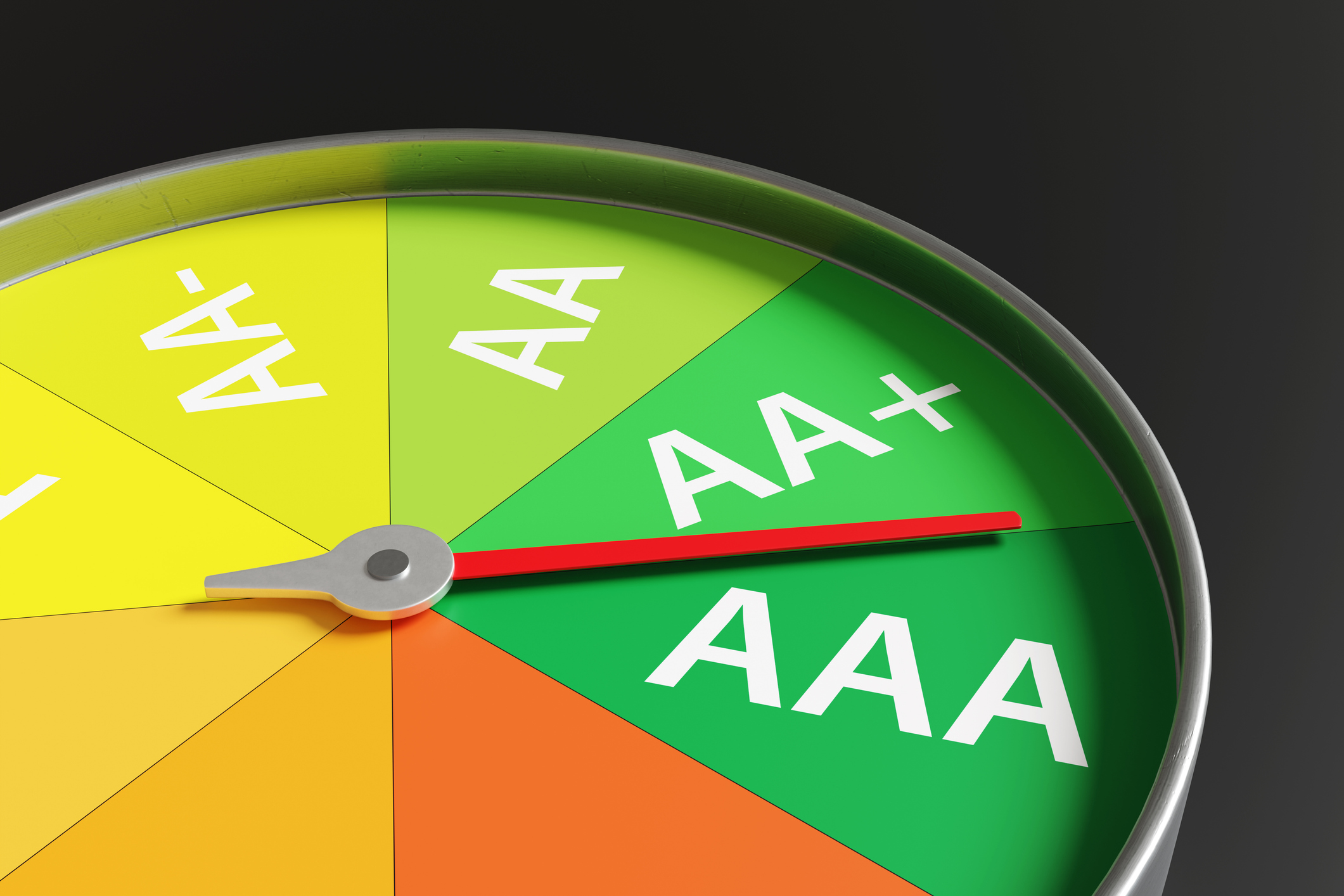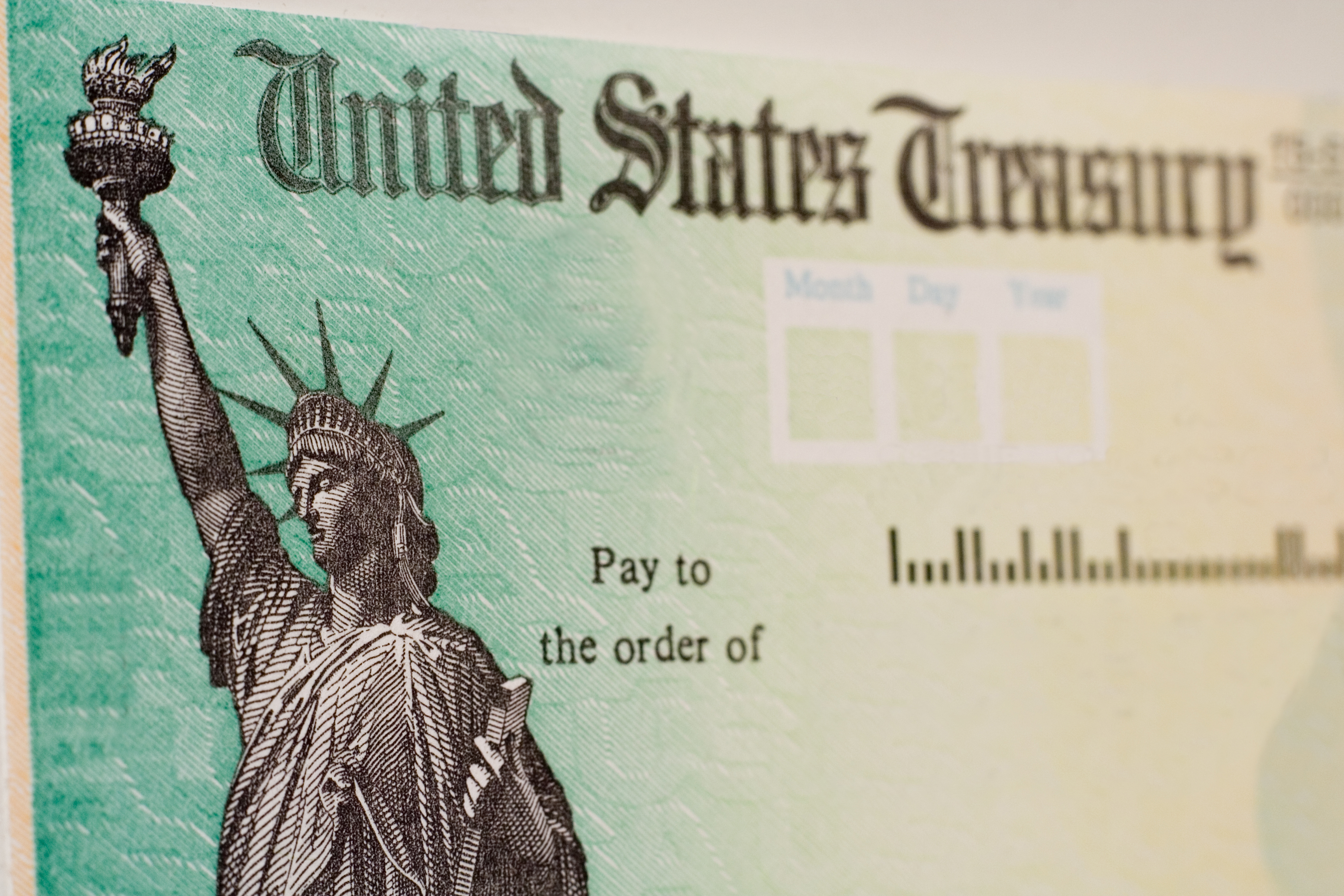Why You Need TIPS
Treasury inflation-protected securities should be a key part of your holdings. We tell you how -- and when -- to buy them.

Profit and prosper with the best of Kiplinger's advice on investing, taxes, retirement, personal finance and much more. Delivered daily. Enter your email in the box and click Sign Me Up.
You are now subscribed
Your newsletter sign-up was successful
Want to add more newsletters?

Delivered daily
Kiplinger Today
Profit and prosper with the best of Kiplinger's advice on investing, taxes, retirement, personal finance and much more delivered daily. Smart money moves start here.

Sent five days a week
Kiplinger A Step Ahead
Get practical help to make better financial decisions in your everyday life, from spending to savings on top deals.

Delivered daily
Kiplinger Closing Bell
Get today's biggest financial and investing headlines delivered to your inbox every day the U.S. stock market is open.

Sent twice a week
Kiplinger Adviser Intel
Financial pros across the country share best practices and fresh tactics to preserve and grow your wealth.

Delivered weekly
Kiplinger Tax Tips
Trim your federal and state tax bills with practical tax-planning and tax-cutting strategies.

Sent twice a week
Kiplinger Retirement Tips
Your twice-a-week guide to planning and enjoying a financially secure and richly rewarding retirement

Sent bimonthly.
Kiplinger Adviser Angle
Insights for advisers, wealth managers and other financial professionals.

Sent twice a week
Kiplinger Investing Weekly
Your twice-a-week roundup of promising stocks, funds, companies and industries you should consider, ones you should avoid, and why.

Sent weekly for six weeks
Kiplinger Invest for Retirement
Your step-by-step six-part series on how to invest for retirement, from devising a successful strategy to exactly which investments to choose.
Worried about inflation? You should be. True, the recession and the listless economic recovery have kept a lid on prices for the past couple of years. But Uncle Sam's profligate deficits and easy-money policy will likely stoke higher prices down the road.
When inflation starts to bubble up, Treasury inflation-protected securities can turn down the heat on your portfolio. Issued with the full faith and credit of the U.S. government, TIPS are one of the few investments guaranteed to earn, under normal circumstances, a "real," or after-inflation, return. Their principal value adjusts in sync with the consumer price index and, because the coupon payments on TIPS cue off this adjusted principal figure, the bonds pay an inflation-indexed income, too.
It's a straightforward promise, but to make the most of it you have to understand what drives TIPS prices. The so-called break-even rate, which you find by subtracting the yield of a TIPS issue from the yield of a regular Treasury bond of similar maturity, refers to the hypothetical future inflation rate that would cause TIPS and Treasury notes to break even with one another. When the break-even rate seems unrealistically low, TIPS are cheap relative to Treasuries, and vice versa. As of February 15, for example, TIPS maturing in five years yielded 0.56%, and Treasury notes due in five years yielded 2.33%. This implies that if inflation averages 1.77% annually over the next five years, your return from holding the five-year TIPS and the five-year Treasury note until maturity will be the same. If inflation turns out to be higher than 1.77%, TIPS will beat the Treasury note, and the reverse will be true if inflation is lower.
From just $107.88 $24.99 for Kiplinger Personal Finance
Become a smarter, better informed investor. Subscribe from just $107.88 $24.99, plus get up to 4 Special Issues

Sign up for Kiplinger’s Free Newsletters
Profit and prosper with the best of expert advice on investing, taxes, retirement, personal finance and more - straight to your e-mail.
Profit and prosper with the best of expert advice - straight to your e-mail.
If consumer prices rise at their long-term historical rate of 3.23% over the next five years, then TIPS are a screaming buy. But many investors think various economic forces, such as the 9.7% jobless rate and the slack pace of lending, will keep prices in check. "We think inflation will be more like 1% over the next three to five years," says Kenneth Volpert, co-manager of Vanguard Inflation-Protected Securities (symbol VIPSX), a member of the Kiplinger 25. Lately, he and co-manager John Hollyer have been favoring Treasury notes over TIPS, but TIPS still account for more than 80% of their fund's $28 billion in assets.
You don't need a crystal ball to make a case for buying TIPS. After all, TIPS holders won't lose any money if inflation turns out to be lower than expected. But if inflation ends up being much higher than expected, holders of ordinary Treasury notes will lose money in real terms.
How to buy them. You can buy newly issued five-, ten- and 30-year bonds at auction through the U.S. Treasury, at Treasurydirect.gov, free of charge. TIPS auctions for 2010 are tentatively set for April, July, August and October. You can also buy new TIPS or previously issued ones in the secondary market through your broker. Charles Schwab and Fidelity charge no fee for new issues purchased online, but all brokers fold a commission into the price you pay for bonds in the open market.
If you're considering TIPS for a taxable account, holding individual TIPS may not be your best option. Interest income and any inflation-driven growth in principal from TIPS are exempt from state and local taxes but are subject to federal taxes. Trouble is, you'll owe taxes on any inflation adjustments to a bond's principal value for the tax year in which the adjustment occurs, even if you don't sell the bond. "If you own a single TIPS security, that may not be such a big deal," says Jeff Layman, of BKD Wealth Advisors, a Springfield, Mo., money-management firm. "But if you own several different maturities, it can become a bigger headache than it's worth."
Mutual funds simplify the tax treatment. "With a fund, everything rolls into your income distribution," Layman says. The Vanguard fund also gives you diversification across maturities, plus access to the expertise of Volpert and Hollyer, who can boost returns by exploiting inefficiencies in the TIPS market. The fund returned 7.1% annualized from its inception on June 29, 2000, through February 15, 2010. Its annual expense ratio is a low 0.25%.
The downside of investing through a fund is that you're exposed to the price fluctuations of TIPS. As with any investment, TIPS prices are driven by supply and demand and are strongly influenced by investors' expectations for inflation and interest rates. In 2008, for example, the CPI gained 0.1%, but an index of TIPS lost 2.4%. Last year, the CPI gained 2.7%, while the TIPS index gained 11.4%. If you held individual bonds through that period and didn't sell, you were unaffected by the volatility. But if you invested in a TIPS fund, you watched the value of your shares jerk around.
A TIPS fund that keeps maturities short will give you a smoother ride. Historically, TIPS maturing in one to five years have been almost half as volatile as the broader TIPS market, which includes bonds maturing in more than 20 years. The performance of short-dated TIPS has also tracked inflation more closely than the TIPS market as a whole.
ETF entry. Only a single exchange-traded fund specializes in short-term TIPS. Pimco 1-5 Year U.S. TIPS Index (STPZ) tracks the Bank of America Merrill Lynch 1-5 Year U.S. Inflation-Linked Treasury index. This ETF, which charges 0.20% for expenses, is less than a year old, but the index it follows has gained 5.8% annualized since it was created in early 2002.
Prices on all TIPS should hold up well if interest rates rise in response to inflation -- in such a situation you would see the break-even rate between TIPS and Treasuries widen. But if real rates were to rise -- which could happen if, for instance, nominal interest rates jumped but inflation held steady -- TIPS would suffer along with other bonds.
You might wonder, and rightly so, why you should invest in short-term TIPS when many are yielding less than nothing. TIPS maturing in two years recently traded to yield Ð0.49% (remember that TIPS yields are always quoted in real terms; it's highly likely that inflation will be strong enough that investors buying into a negative real TIPS yield will at least come out even in nominal terms). That compares with the two-year Treasury note's yield of 0.81% and implies that inflation would need to average 1.30% over the next two years for TIPS investors to break even with Treasury-note investors.
Blame policymakers for those low yields. Short-term interest rates "are like a coiled spring that the Federal Reserve is holding down," says Volpert. He thinks that the thin supply of new issues in the TIPS market, relative to Treasury notes, has also contributed to the wide yield gap in short-term maturities.
Chances are good that short-term yields will rise over the course of the next year. "The further we get into 2010, the more likely it is that short rates will bounce up," Volpert says. In addition, Pimco, which has a close relationship with policymakers, says it expects the Treasury to increase the portion of its debt issued in TIPS. That should be a boon for TIPS yields. "There are many investors who require inflation protection, and the Treasury wants to issue where there's demand," says John Cavalieri, the product manager for Pimco's inflation-targeting funds. Investors should consider waiting until short-term TIPS yields turn positive before beginning to build a position in the Pimco fund.
The I-bond alternative. Finally, if you desire inflation protection but would prefer to avoid price movements and tax headaches, consider series I U.S. savings bonds. Interest on the bonds accrues according to a fixed-rate component (until May 1, when a new rate will be set, the fixed rate on new bonds is 0.30%), plus an inflation-indexed rate, and you can defer all taxes until redemption. You have to hold the bonds for at least five years to avoid a penalty, but as long as you hold for at least one year, you can redeem them with the Treasury. You can invest a maximum of $5,000 in the paper bonds and $5,000 in the bonds electronically each year, for a total of $10,000 per calendar year.
TIPS or series I bonds should be a core part of your investments -- consider keeping 10% of your fixed-income holdings stashed in inflation-hedged bonds and increasing that figure if inflation ignites. But, particularly in light of the low yields on TIPS, they should be just one component of your portfolio's inflation defenses, which could also include commodities and real estate.
Profit and prosper with the best of Kiplinger's advice on investing, taxes, retirement, personal finance and much more. Delivered daily. Enter your email in the box and click Sign Me Up.

-
 Nasdaq Leads a Rocky Risk-On Rally: Stock Market Today
Nasdaq Leads a Rocky Risk-On Rally: Stock Market TodayAnother worrying bout of late-session weakness couldn't take down the main equity indexes on Wednesday.
-
 Quiz: Do You Know How to Avoid the "Medigap Trap?"
Quiz: Do You Know How to Avoid the "Medigap Trap?"Quiz Test your basic knowledge of the "Medigap Trap" in our quick quiz.
-
 5 Top Tax-Efficient Mutual Funds for Smarter Investing
5 Top Tax-Efficient Mutual Funds for Smarter InvestingMutual funds are many things, but "tax-friendly" usually isn't one of them. These are the exceptions.
-
 Big Change Coming to the Federal Reserve
Big Change Coming to the Federal ReserveThe Lette A new chairman of the Federal Reserve has been named. What will this mean for the economy?
-
 Bond Ratings and What They Mean
Bond Ratings and What They Meaninvesting Bond ratings measure the creditworthiness of your bond issuer. Understanding bond ratings can help you limit your risk and maximize your yield.
-
 Bond Basics: Treasuries
Bond Basics: Treasuriesinvesting Understand the different types of U.S. treasuries and how they work.
-
 Bond Basics: Ownership
Bond Basics: Ownershipinvesting Bonds come in a variety of forms, but they all share these basic traits.
-
 Bond Basics: Pick Your Type
Bond Basics: Pick Your Typeinvesting Bonds offer a variety of ways to grow wealth and fortify your portfolio. Learn about the types of bonds and how they work.
-
 Best Banks for High-Net-Worth Clients
Best Banks for High-Net-Worth Clientswealth management These banks welcome customers who keep high balances in deposit and investment accounts, showering them with fee breaks and access to financial-planning services.
-
 Silicon Valley Bank, Signature Bank Failures Send Bank Stocks Reeling
Silicon Valley Bank, Signature Bank Failures Send Bank Stocks ReelingFinancial stocks continued to sell off following the collapse of regional lenders SVB and Signature Bank.
-
 Stock Market Today: S&P 500 Snaps Weekly Losing Streak
Stock Market Today: S&P 500 Snaps Weekly Losing StreakAI stocks were big winners on Friday after C3.ai posted solid earnings and guidance.